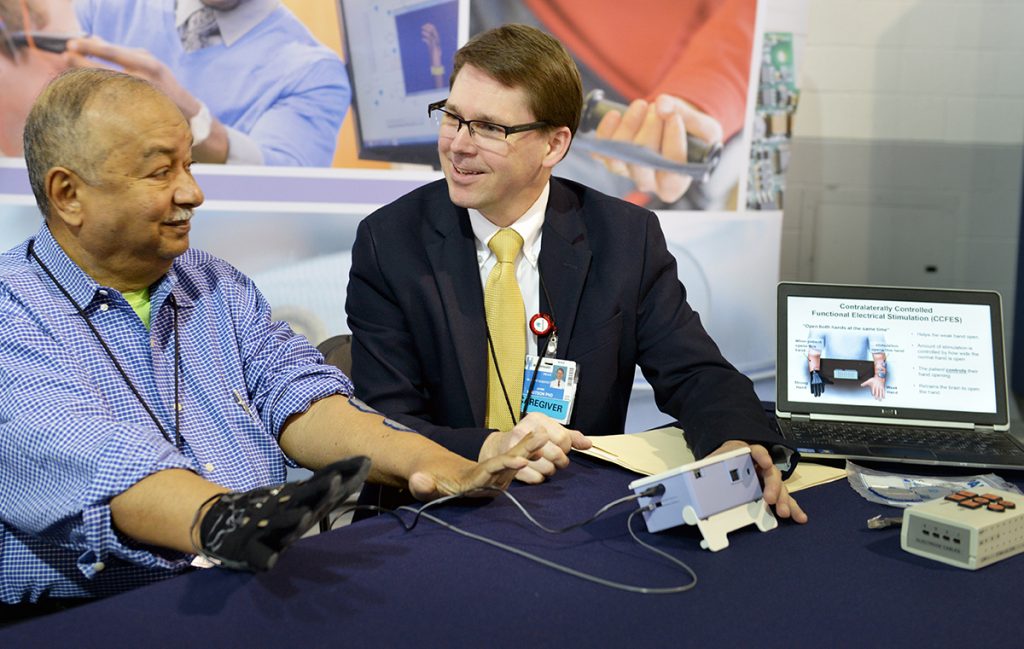Contralaterally Controlled Functional Electrical Stimulation Plus Video Games for Hand Therapy After Stroke
The purpose of this project is to see if the effects of CCFES can be increased.
This study will demonstrate the supplemental motor relearning value of virtual reality/video games to CCFES therapy, identify patients most likely to respond to both therapies, and determine whether adding Hand Therapy Video Games (HTVG) to CCFES changes how the brain functions.

About This Study
The objectives of this project are to compare how CCFES and CCFES+HTVG affect arm and hand movement, to determine if the effectiveness of our treatment depends on how long ago the stroke was or how severely the stroke affected hand movement, and to compare how CCFES and CCFES+HTVG affect how the brain activates when trying to move the hand.
Study Information
A single-blinded randomized controlled trial will be carried out to assess the effects of 12 weeks of Contralaterally Controlled Functional Electrical Stimulation (CCFES) +Hand Therapy Video Games (HTVG) compared to CCFES. Dexterity, upper limb impairment, and activity limitation will be assessed at 0 (baseline), 3, 6, 9, 12 (end of treatment), 24, and 36 wks. Cortical activation (measured with fMRI) will be assessed at 0 and 12 wks. The treatment dose will be the same for both groups: 10 sessions per week (7.5 hrs) of self-administered treatment at home plus 2 sessions per week (3 hrs) of group-specific occupational therapy in the lab.
Detailed program information and criteria available at: https://clinicaltrials.gov/ct2/show/NCT03058796
Narrative

Principal Investigators: Jayme Knutson, PhD
Program Contact: Shannon Hogan
Contact Number: (216) 957-3558
Contact Email: SHogan@metrohealth.org
Contact Request
Researchers rely on individuals to serve as volunteers for program studies. Each study is designed to answer questions about a specific medical aspect or the effectiveness of a particular treatment. Through the commitment of research volunteers, knowledge gained and communicated to other medical professionals ultimately benefits the community.
If you would like more information about becoming a research volunteer please submit the information below.
